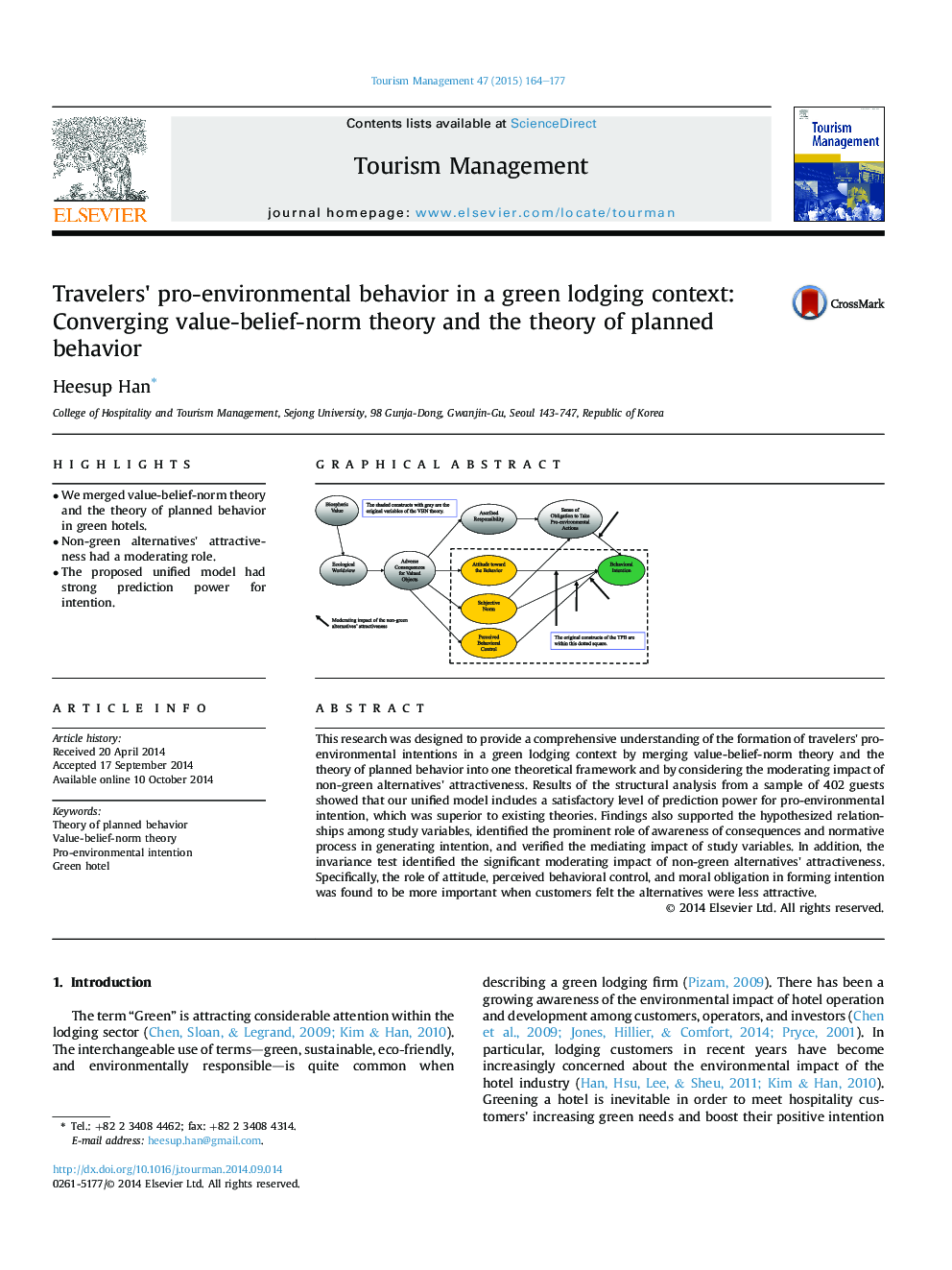| Article ID | Journal | Published Year | Pages | File Type |
|---|---|---|---|---|
| 1011970 | Tourism Management | 2015 | 14 Pages |
•We merged value-belief-norm theory and the theory of planned behavior in green hotels.•Non-green alternatives' attractiveness had a moderating role.•The proposed unified model had strong prediction power for intention.
This research was designed to provide a comprehensive understanding of the formation of travelers' pro-environmental intentions in a green lodging context by merging value-belief-norm theory and the theory of planned behavior into one theoretical framework and by considering the moderating impact of non-green alternatives' attractiveness. Results of the structural analysis from a sample of 402 guests showed that our unified model includes a satisfactory level of prediction power for pro-environmental intention, which was superior to existing theories. Findings also supported the hypothesized relationships among study variables, identified the prominent role of awareness of consequences and normative process in generating intention, and verified the mediating impact of study variables. In addition, the invariance test identified the significant moderating impact of non-green alternatives' attractiveness. Specifically, the role of attitude, perceived behavioral control, and moral obligation in forming intention was found to be more important when customers felt the alternatives were less attractive.
Graphical abstractFigure optionsDownload full-size imageDownload as PowerPoint slide
